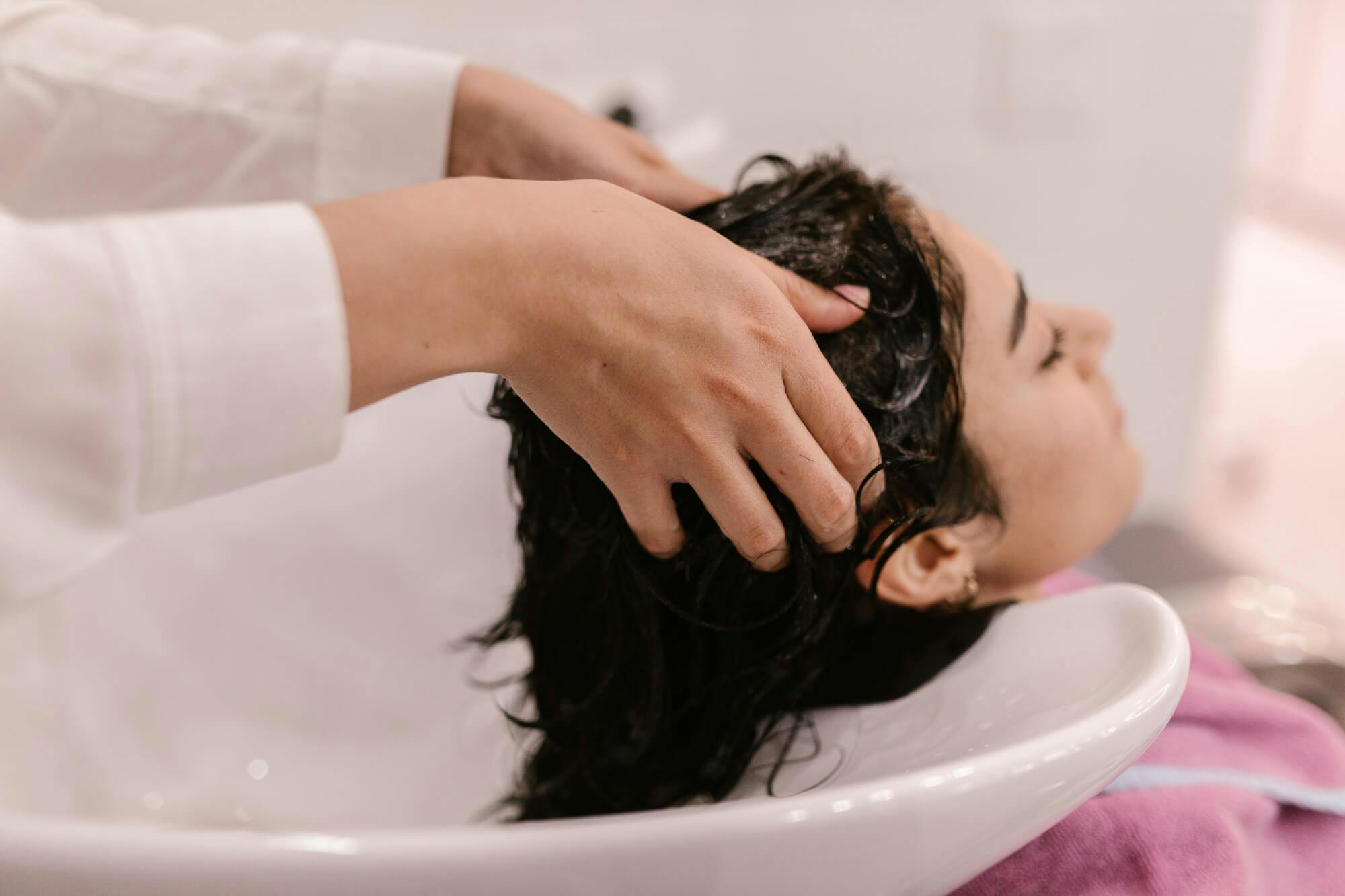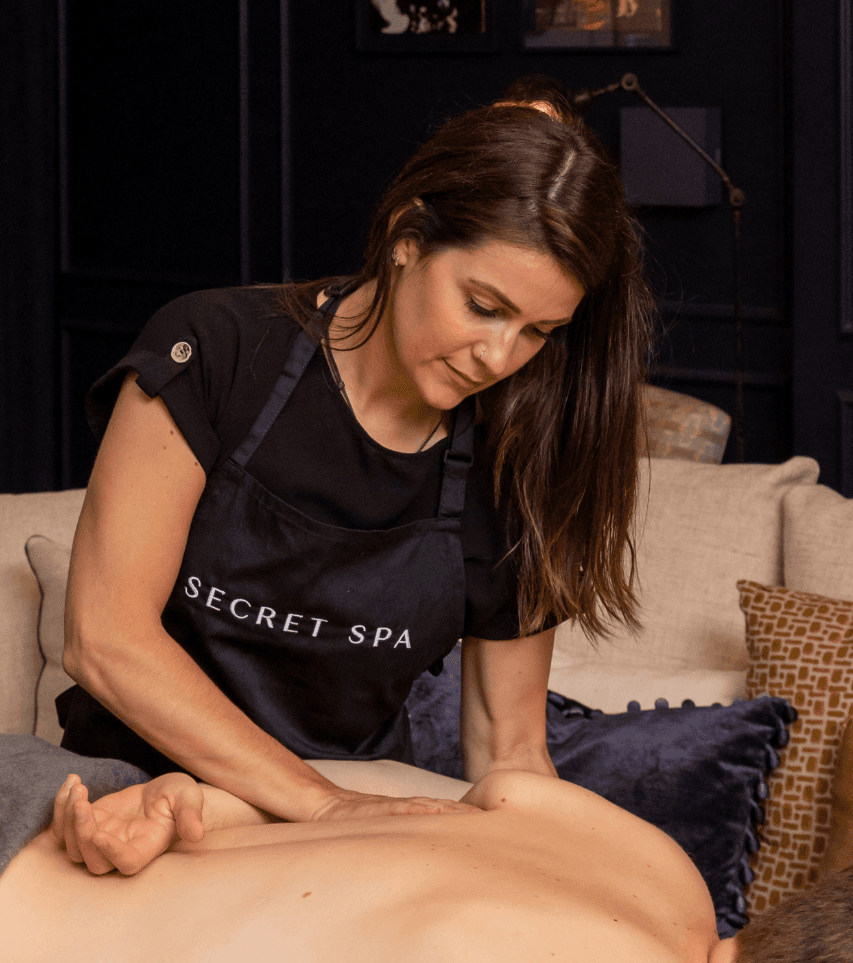All you need to know about hair oils
Dec 8, 2022

If your hair is dry, fine, dull, frizzy, you have an irritated scalp or you’d like your locks to grow more quickly, then you may have thought about using hair oils. But which oils are best for hair growth, volume, hydration and shine? This guide will tell you which oil is best for hair growth and thickness, as well as which oils can add shine or much-needed moisture. We also cover how to use hair oil so you can reap the benefits. By the end of this guide, you’ll know all about essential oils for hair growth, how to use them and why this might benefit both your crowning glory and your scalp. Let’s get started with a brief overview of hair oils.
Overview of hair oils and their benefits
Hair oiling involves applying oils to the hair and scalp. Highly moisturising oils can help to rebalance hair that’s dehydrated, dull or slow to grow. The right oils can replace those minerals and vitamins that are missing.In some cultures – particularly in southern Asia – hair oiling is common practice. This is done to maintain good hair health, and some think it can even stimulate growth and slow hair loss. Hair oiling is also important within Ayurvedic medicine. Applying hair oil can hydrate hair, thereby reducing dryness, frizz and flyaways. Various oils can be used, but it’s important to choose the right one and apply it correctly. Let’s move onto how to apply hair oils.
How to apply hair oils
When applying hair oil, it’s crucial to target the scalp, as this is where all hair growth starts. Massaging oil into the scalp may stimulate growth by improving circulation, and the added moisture also takes care of any dryness or dandruff. For the best results, follow these simple steps when applying hair oil. Firstly, timing can be key. Applying hair oil at night means it can be left on overnight to work its magic. So choose an evening when you have time to apply the oil, and can sleep in a shower cap to ensure it stays in place. To apply the oil, add it little by little to your scalp and massage gently using your fingertips. Next, use a small quantity of oil to coat your hair. Once the oil has been carefully and consistently applied, pop on a shower cap to keep your locks – and pillow – protected overnight.The next morning, shampoo and rinse thoroughly before adding conditioner as normal. You should then find that your scalp feels well moisturised, and your hair looks and feels more hydrated, healthy and shiny.
10 best hair oils
Is hair oiling good? Yes, it can be very beneficial indeed. But the key can be choosing the right oil for your hair type, and to address the issue you’re experiencing. Here’s a rundown of the best hair oils you can use.
1. Coconut oil
Coconut oil is often the first option that comes to mind when considering whether oil is good for the hair. It’s widely available and affordable – and is the most frequently used hair oil of all. Coconut oil is a good all-rounder that can hydrate each individual strand, improving strength and shine as it does so.
2. Castor oil
Using castor oil can stimulate hair growth by increasing blood flow. It can also moisturise a dry scalp. Castor oil is an effective dandruff treatment due to its natural antibacterial properties. This oil is found within the castor plant’s seeds.
3. Rosemary oil
When applied to the skin, rosemary oil has a warming effect that can stimulate the scalp. It can be used to treat an itching or dry scalp, and to encourage hair growth. As rosemary oil can boost circulation and nerve development and has anti-inflammatory properties, it’s particularly good for treating hair loss and dandruff.
4. Argan oil
The benefits of argan oil for hair are well documented, and indeed this is an oil found in many hair products. It may also be referred to as Moroccan oil or Moroccan argan oil. Argan oil is rich in antioxidants, essential Omega 3 fatty acids and vitamins A, C and E. These can improve hair strength and condition.
5. Olive oil
Olive oil can be used to strengthen and hydrate hair. It can also improve the elasticity of each strand due to the oleic acid and squalene it contains. Olive oil can weigh down thinner hair, though, so is best for locks with a thicker texture.
6. Jojoba oil
Jojoba oil also has antifungal and antibacterial properties, and is highly moisturising too. It can also help to replenish damaged strands. As it contains copper, zinc, B vitamins, vitamin C and vitamin E, it’s highly nourishing for the hair and scalp.
7. Black seed oil
Black seed oil is also known as black cumin. It can help to soothe the scalp, and like some other hair oils it has antibacterial, anti-fungal and anti-inflammatory properties. Black cumin seed oil can be applied directly to the hair and scalp. It can protect the scalp, and lock moisture into the hair.
8. Avocado oil
Avocado oil also contains plenty of good stuff for hair health – namely fatty acids, minerals and antioxidants. Its moisturising properties mean it can fight frizz, and it’s also rich in vitamins A, B5 and E. This oil can be used as a carrier, so you can add oils such as rosemary or peppermint to it for an added boost.
9. Grapeseed oil
Lots of great things come from grapes, including wine and the fruit itself which is delicious as a snack or served alongside a cheeseboard. Grapeseed oil is another wonder that the vine can produce, and when massaged into your hair and scalp it can hydrate hair while improving strength and adding an enviable shine.
10. Peppermint oil
Like rosemary oil, peppermint can act as a stimulant. This means it can calm an irritated scalp. Peppermint oil is best used on oily hair rather than dry, as it can have a stringent effect. You can use rosemary and peppermint oils together to encourage new growth, reduce inflammation and even improve hair thickness.If you’re wondering how to give your hair the boost it needs, talk to an experienced hairdresser who can help.
[button link="https://book.secretspa.co.uk/categories/hairdressing"]Book hairdressing[/button]
Book our
experts today
Related Articles
What is a Brazilian Blow Dry?
Jun 1, 2020
What hair colour suits me? Tips for choosing a hair colour
Mar 21, 2025
All you need to know about hair botox
Sep 14, 2022
Tips for making your blow dry last longer
Jun 15, 2021
How to care for bleached and dyed hair
Sep 7, 2021
What are the different types of hair dye and colour techniques?
Jan 4, 2021






